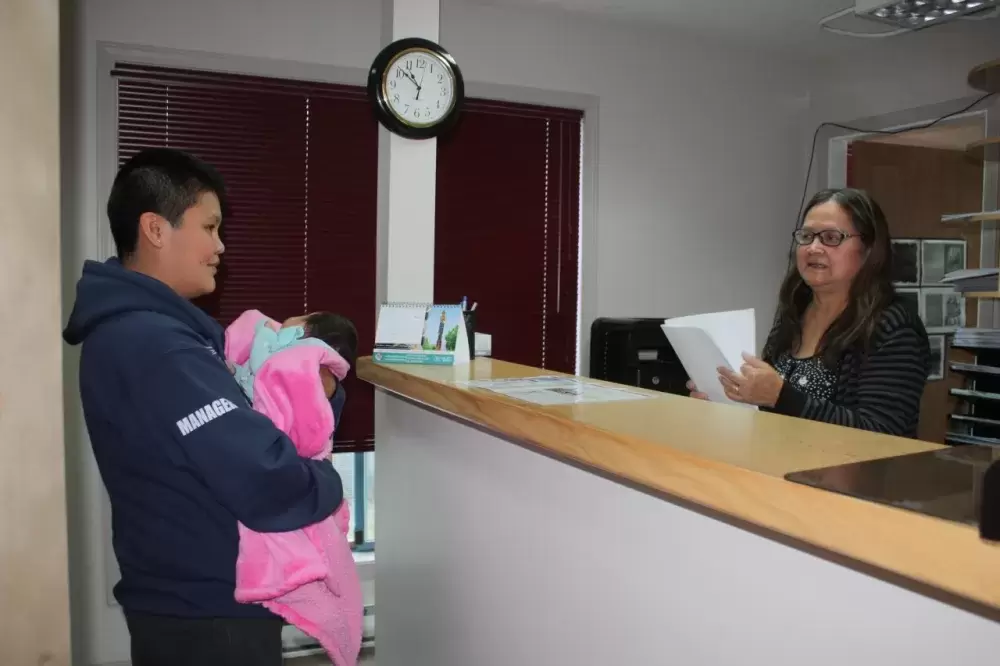The Indian Status Card is an identity document issued by the Canadian government that confirms a person is registered as a Status Indian under the Indian Act.
While some Indigenous people view the card as an unsavoury reminder of Canada’s Indian Act, it is still a necessity for those that wish to receive the benefits of Indian Status (IS), like tax-free purchases on Indian Reserve, medical benefits or to cross the border into the US.
But IS cards have five-year expiry dates and it is getting more and more difficult to find a place to renew a card.
Most go to their band office membership clerks to renew cards, but for many this is not always possible, given remote locations of Indian Reserves, the limited supply of cards each clerk is given and other factors.
Some can go to more central locations, asking other First Nations or tribal councils to renew cards, but it’s a hit-or-miss gamble. For these people looking to get a status card the same day, the best bet is to phone around to the various band membership clerks to see if they are able to issue a card to a non-band member.
And then there is the Secure Certificate of Indian Status (SCIS). You won’t get it in one day, but if you can spare a few weeks, the SCIS is worth the wait. For adults, the SCIS expires in 10 years; as opposed to the 5 years on a standard IS card. Also, it is preferred by Border Patrol
Agents.
Recent changes to rules for applying for a Secure Certificate of Indian Status mean that people can now apply online for a card and they no longer require a copy of their birth certificate.
Other recent improvements to the application process are the requirement of only one piece of identification instead of two and an expanded guarantor list.
People may apply for SCIS cards in person in Vancouver at the Indigenous and Northern Affairs Regional Office, located at 1138 Melville Street. Or, or they may apply by mail by downloading the forms, following instructions and mailing their application and supporting documents to the National SCIS Processing Unit, Indigenous and Northern Affairs Canada in Quebec.
It is important to have acceptable, valid identification when applying for or renewing a status card. Examples of unexpired valid identification include a passport, driver’s license, government-issued identification card, and health card. The identification should include your name, date of birth, photo and signature.
Original documents and photocopies are accepted; however, photocopies must show the front AND back of the document and must be signed and dated by a guarantor along with a guarantor declaration.
A guarantor is a person that can confirm your identity. You will need a guarantor if you are applying for a card by mail, or if you don’t have valid identification. You will also need a guarantor when applying for a card on another person’s behalf, such a child or dependant adult.
A parent or legal guardian applying for IS or SCIS on behalf of a child or dependant adult cannot act as a guarantor; however, a family member may act as a guarantor if they are age 18 or over, reside in Canada or the US, is capable of being reached by INAC (Indigenous and Northern Affair Canada), have known you personally for more than two years, possesses a valid SCIS and works in an eligible occupation.
Eligible occupations include band chief councillor or councillor, municipal clerk, Indian registration administrator, deputy registrar and more. The full list can be found on the AANDC website at https://www.aadnc-aandc.gc.ca/eng/1517001167059/1517001188676
If you can’t find a guarantor, you may complete and submit a statutory declaration, available online. For this you will need two references not related to you and two passport photos.
The forms must be signed and dated in front of a commissioner of oaths, a notary public or a lawyer.
You will also need two copies of a passport-size photograph. There are specific requirements for the photographs that can be found at https://www.aadnc-aandc.gc.ca/eng/1333474227679/1333474298675
Rosie Marsden is the Indian registry administrator at the Nuu-chah-nulth Tribal Council. She provides status card services to members of Ehattesaht, Hesquiaht, Hupacasath, Ka:'yu:'k't'h'/Che:k:tles7et'h', Mowachaht/Muchalaht, Nuchatlaht and Tseshaht.
She advises that adults applying for or renewing their status cards must produce two pieces of identification; for minors ages 15 years and under, one piece of identification is sufficient. She says the cost for photos is $5 at the NTC.
“People wishing to get a card at the NTC are advised to call the office in advance (250-724-5757) to ensure there is a supply of cards and that a staff member is available,” said Marsden.
Members of other Nuu-chah-nulth nations not serviced through the NTC must contact their band offices or make alternative arrangements with other First Nations membership clerks or government agencies.
Those applying for a SCIS card through the Government of Canada should expect a 16-week processing time.







